15-05-2019
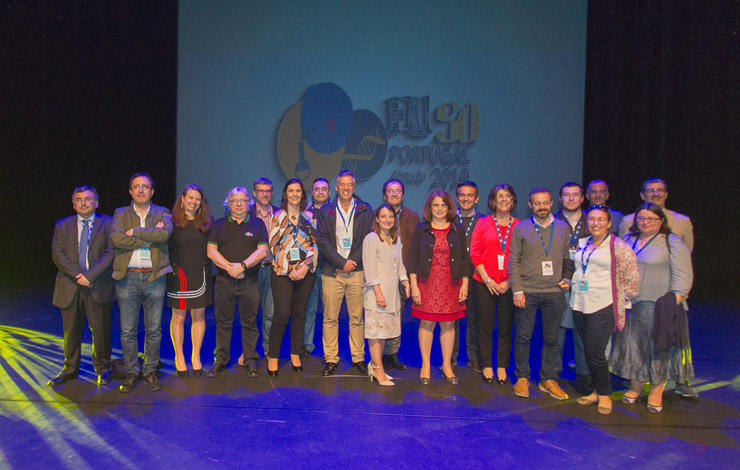
FCT NOVA was one of the entities responsible for this year's edition of the European Union Science Olympiad (EUSO), with 53 teachers and researchers from FCT NOVA and 93 volunteers receiving and biding farewell to the 150 secondary students who came from all over Europe to the Caparica campus to compete in the 17th edition of EUSO.
"EUSO has shown that a critical mass of increasing visibility already exists in Portugal, which enabled the selection of a national university - FCT NOVA - to organize a large and complex competition, both at logistical and scientific level. The preparation of this operation required the intervention of two hundred professionals (teachers and technicians) over a year, which contributed to the great success of the result: the country strengthened its capacity and image of involvement in the international arena of science, technology and innovation. All the international participants (students and mentors) were unanimous in recognizing the exemplary way everything was planned and organized - we heard from several students that this had been the best week of their lives," declared the Dean of FCT NOVA, Virgílio Cruz Machado.
From May 4 to 11, the young scientists had an intense week of work and leisure. But for FCT NOVA Teachers and Researchers, the work began much earlier, with the design of the tests and the preparation of the Portuguese teams, who came for ten Saturdays to the laboratories of this School to study with our teachers.
"The tasks were designed to represent the country," explained Maria João Romão, professor at FCT NOVA and President of the Scientific Committee of this EUSO's edition, to the newspaper Público. Under the theme of cork and ocean, the two tests of physics, biology and chemistry involved the use of 350 diodes, 18,000 gloves, 600 petri dishes, 180 micropipettes, 720 erlenmeyers, 114 gobelés, 5 thousand microtubes, 6 thousand blades and 24 thousand covers.
The 150 students, coming from 24 countries of the European Union, were welcomed in a warm ceremony that took place during the morning of May 5th at the FCT NOVA Grand Auditorium, where members of the Honorary, Scientific and Organizing Committees welcomed all present and wished all the teams success. Each of the 50 teams (two teams per country and four Portuguese, as the organizing country) had the opportunity to present itself to the audience.
João Cruz, Professor of FCT NOVA and mentor of the physics tests in this competition, confessed to Público that "EUSO pulls them intellectually, which will make them evolve more as scientists as well as human beings."
"The Science Olympiad of the European Union (EUSO), originally conceived by Michael A. Cotter, has a scientific dimension and a political dimension: it aims to bring together 16-year-old science enthusiastic Europeans and is a very significant contribution to the importance of science in Europe and European citizenship, "explained João Carlos Lima, Deputy Director for Research at FCT NOVA and member of the EUSO 2019 Organizing Committee.
The closing session was held on May 10, at the Joaquim Benite Theater in Almada, with the delivery of the medals. Portugal won two silver medals and Germany came out as the absolute winner, with both teams winning gold medals and the B team winning the trophy.
EUSO 2019 was highly sponsored by the President of the Republic, Marcelo Rebelo de Sousa, who also presided over the Honor Commission.
The organization of the 17th EUSO was in charge of the Ministry of Education, through the Directorate General of Education, with the partnership of FCT NOVA, Almada City Hall, the Order of Biologists, the Portuguese Society of Physics and the Portuguese Society of Chemistry.
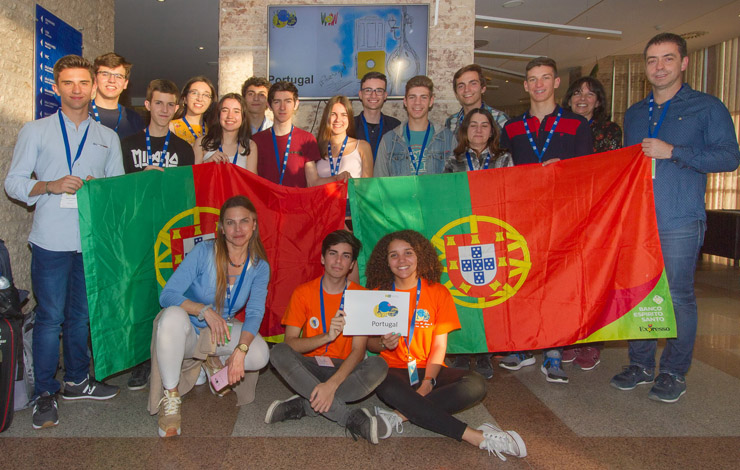
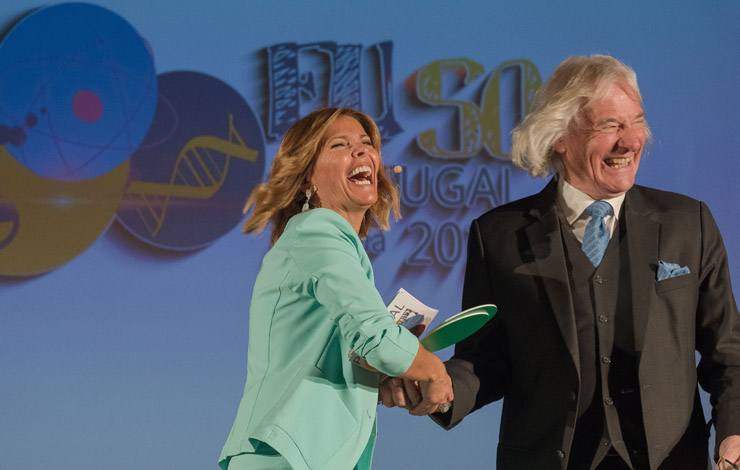

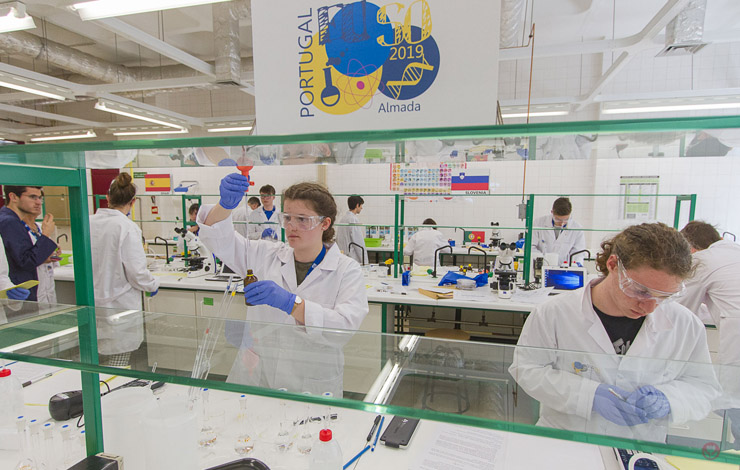
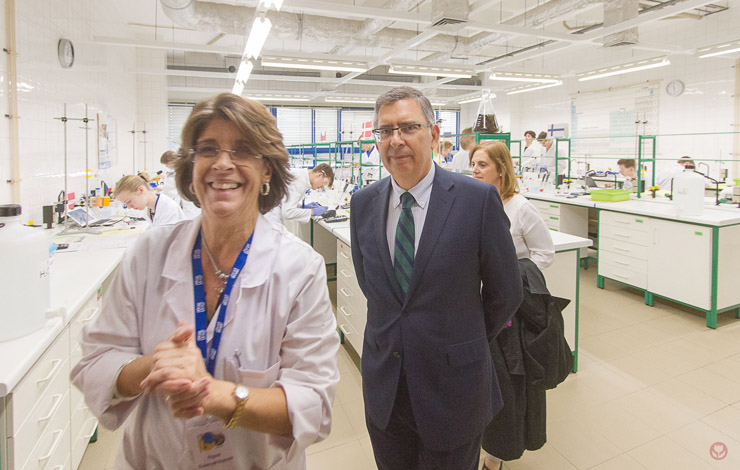
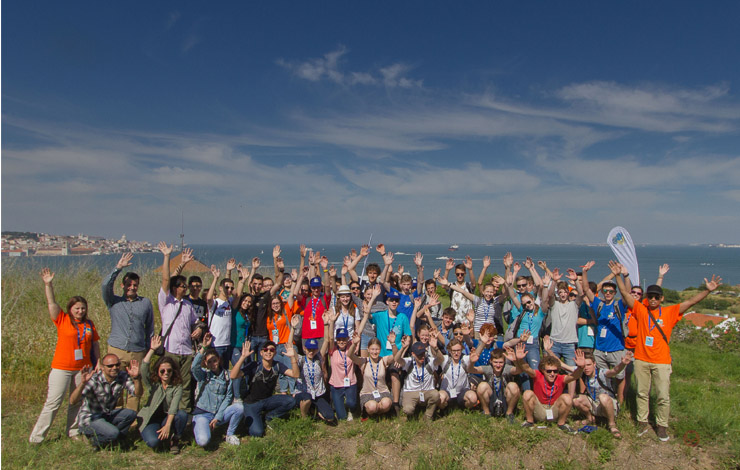
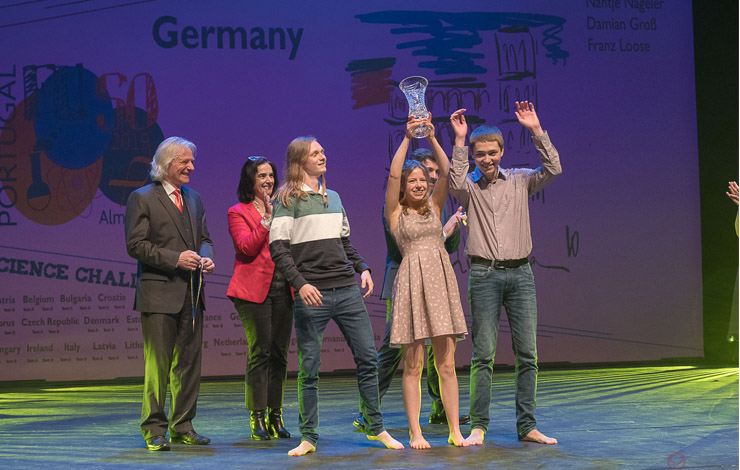
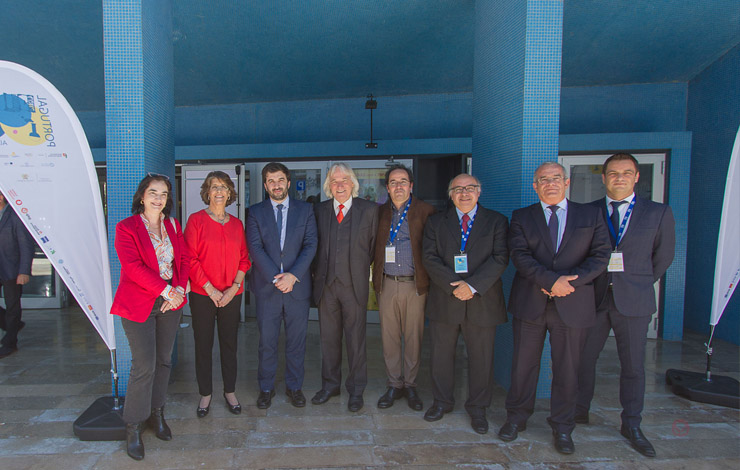
Images here
"Duas equipas portuguesas ganham medalha de prata na Olimpíada da Ciência da UE" (TSF)
"Duas equipas portuguesas de prata nas Olimpíadas da Ciência da UE" (Bom dia Europa)
"Duas equipas portuguesas ganham medalha de prata na Olimpíada da Ciência da UE" (O Jogo)
"Duas equipas portuguesas ganham medalha de prata na Olimpíada da Ciência" (Notícias ao Minuto)
"Portugal conquistou duas medalhas de prata na olimpíada da ciência" (Pplware Kids)
"Manuel e o João ganharam a medalha de prata nesta Olimpíada" (Flor de Lis)
"Portugal conquista duas medalhas de prata nas Olimpíadas da Ciência da UE" (Exame Informática)
"Portugal conquista duas medalhas de prata na Olimpíada da Ciência" (PC Guia)
"Alunos portugueses conquistam medalhas de prata nas Olimpíadas da Ciência da UE" (dn_insider)
"Alunos portugueses conquistaram medalhas de prata nas Olimpíadas da Ciência da UE" (Oeiras digital)
"Portugal conquista duas medalhas de prata na Olimpíada da Ciência" (Sapo Tek)
"Portugal conquista duas medalhas de prata na Olimpíada da Ciência" (Repair store)
"Portugal conquista duas medalhas de prata na Olimpíada da Ciência" (Blog do Arlindo)
"Portugal conquista duas medalhas de prata na Olimpíada da Ciência" (Aicep-Portugal Global)
"Portugal conquista duas medalhas de prata na Olimpíada da Ciência" (Diário dos Açores)